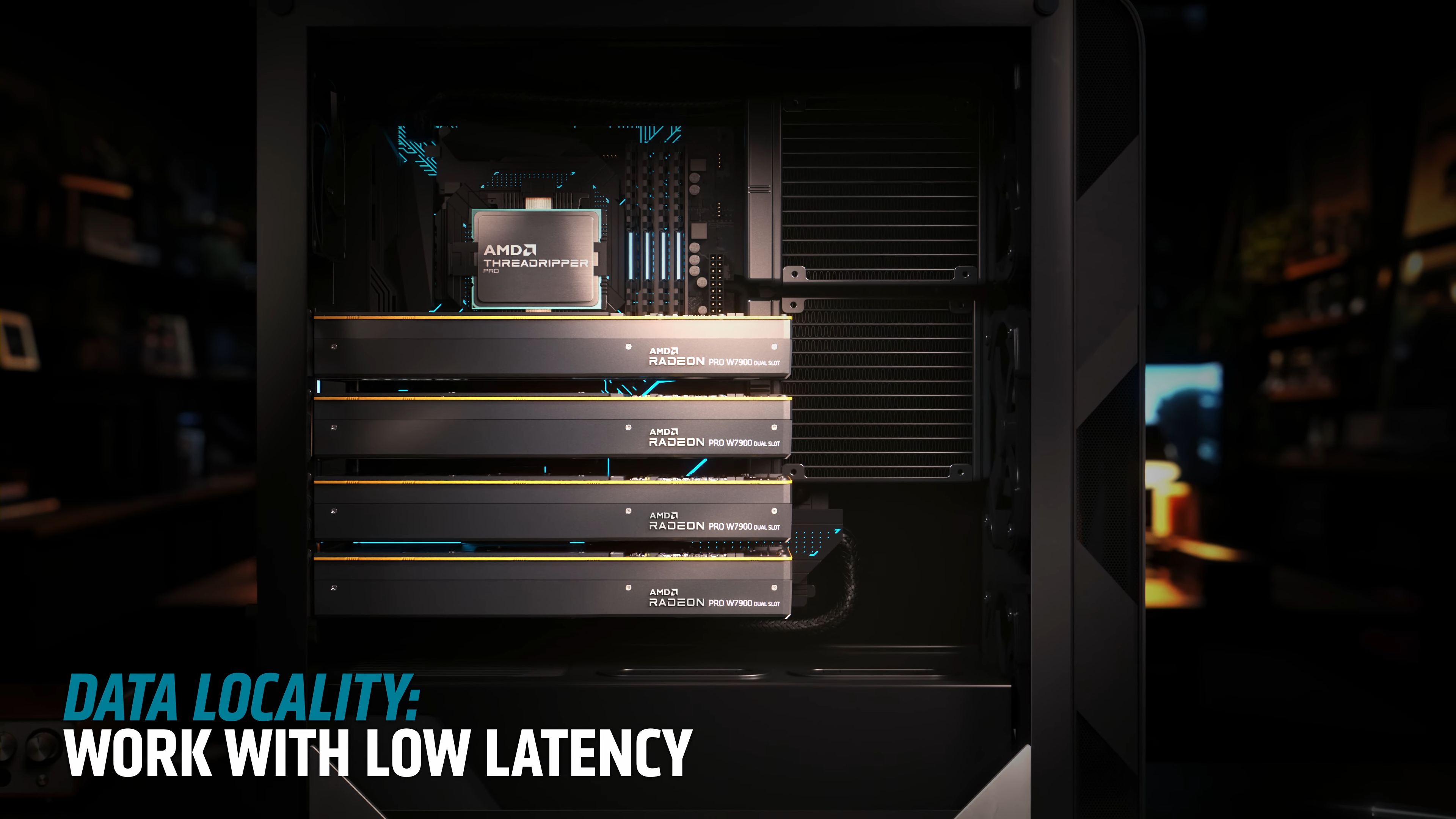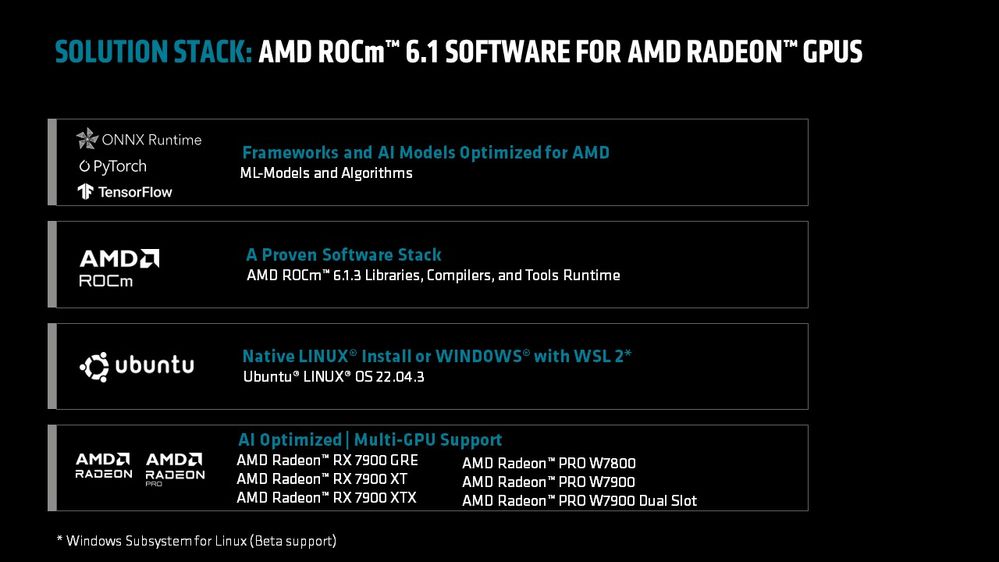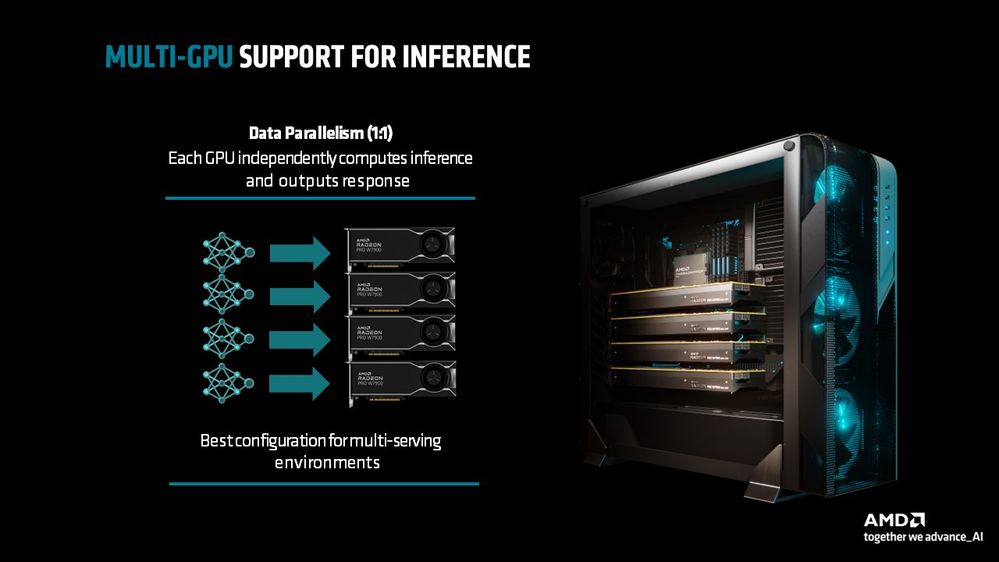AMD has introduced a new update to its ROCm open-source software stack, mostly focusing on enhanced multi-GPU support. The new update, version 6.1.3, adds support for up to four qualified GPUs (integrated into a single machine), beta-level support for Windows Subsystem for Linux, and TensorFlow Framework support.
The biggest update is the additional multi-GPU support. Users of AMD’s ROCm suite of open-source software solutions can now use up to four GPUs to greatly speed up processing time. Surprisingly, not only are some of AMD’s Pro series GPUs supported, a few of the company’s gaming-centric RX-series GPUs are also supported.
Official GPU support for ROCm’s new multi-GPU support capabilities includes the Radeon RX 7900 XTX, RX 7900 XT, and RX 7900 GRE. Support for AMD’s Pro series includes the Radeon Pro W7800, Pro W7900, and the all-new Pro W7900 Dual Slot variant.
The enhanced multi-GPU support is aimed at building scalable AI desktops for high-speed hardware-accelerated AI workflows. GPUs are the cornerstone of high-performance AI, so adding up to four high-performance Radeon GPUs to a single workstation will significantly increase a system’s AI performance compared to running a single GPU.
ROCm 6.1.3 also adds official support for the dual-slot variant of AMD’s W7900 workstation GPU. For full details about the card, you can check out our previous coverage. But basically, the new GPU is a trimmed-down variant of the vanilla three-slot W7900, sporting a slimmer dual-slot blower-style cooler design. The best part is that AMD made no compromises to the GPU’s specs. The W7900 dual slot shares the exact same fully enabled Navi 31 die as its triple slot counterpart.
The W7900 Dual Slot was made primarily with AMD’s new ROCm update in mind. The dual slot nature of the new card, will allow users to equip up to four W7900 dual slot GPUs in a single machine.
Microsoft‘s Windows Subsystem for Linux (WLS 2) is now supported in the new ROCm 6.1.3 update in beta format. This addition will allow Windows-based machines to take advantage of AMD’s ROCm software suite inside of Windows when utilizing a Linux terminal. This will give the Windows Linux subsystem more capabilities and enable users to run more Linux software inside of Windows without the need to have a dedicated Linux setup to run the same software.
Last but not least, AMD has announced qualification of the TensorFlow framework with ROCm 6.1.3. This new addition expands AMD’s AI software support, which already includes PyTorch and ONNX, further improving AMD’s AI GPU capabilities. TensorFlow is a framework that allows users to create machine learning models that can run in any environment.




